24 May
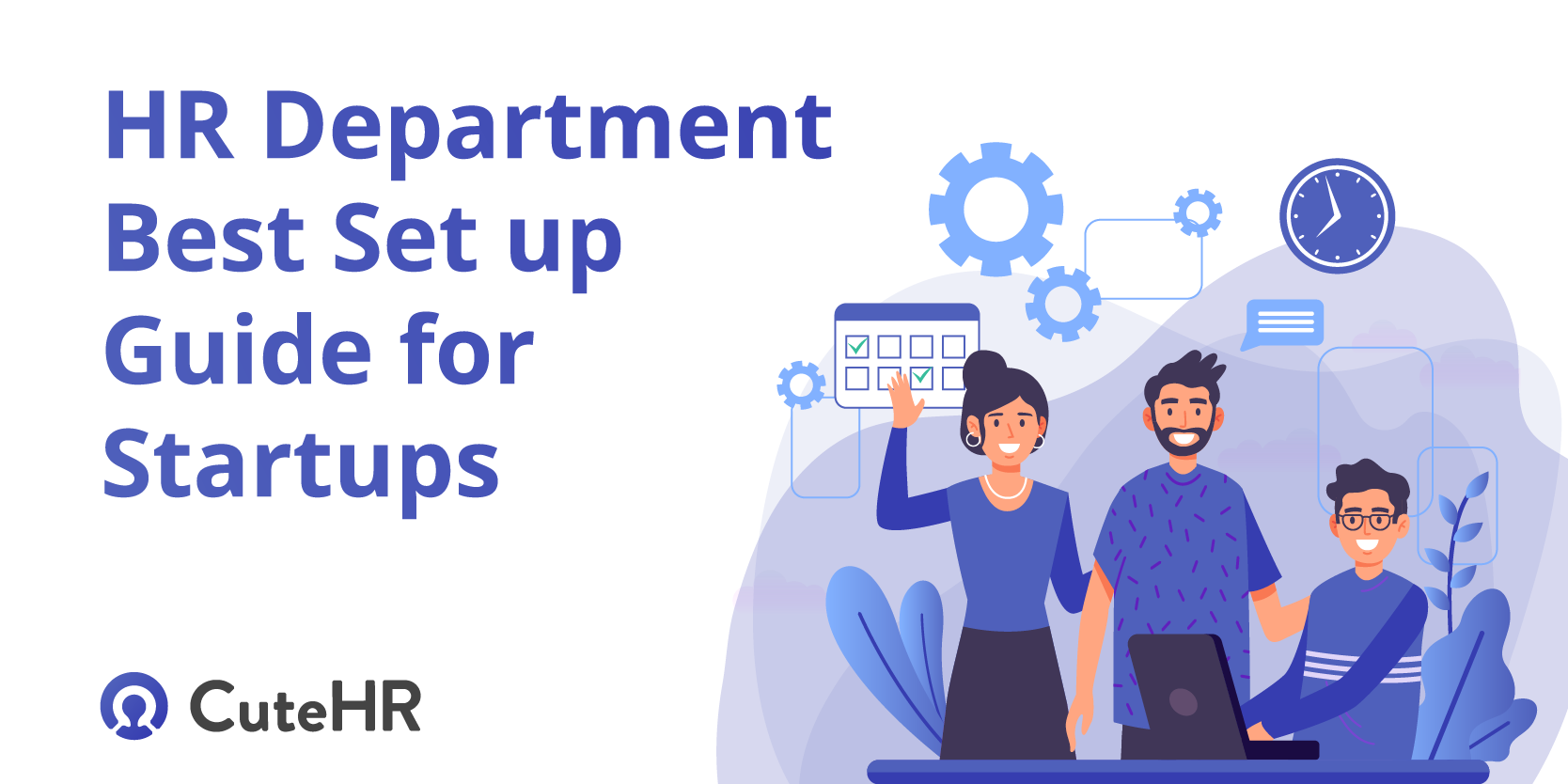
New-age World is an emerging and exciting market for setting up new businesses. The startup wave in the world has picked up over the last decade and is defining the Financial precedence and its HR Department.
‘We have a Million Problems, but at the same time we have over a billion minds’ – Narendra Modi, PM, India
But do you know that only a few start-ups survive the wind of competition and rest fail miserably in the very first year? The reasons are many and the lack of proper Human resource processes is indisputably one of them. Still, many early-stage companies say no to having an HR Department.
A startup founder is often caught up amidst product innovation, market demands, and the cutthroat competition. The focus is on significant ways to create path-breaking products often assuming that managing the employees is a non-essential part of creating risk proof companies.
Most startups don’t have a designated HR and its mostly the founder’s basic skill set of managing people that typically serve initially. But the operational holes begin to appear after a few months. It is assumed that HR Management is crucial for large corporations and business entities, but this is untrue.
The appetite of a horse is different from that of an elephant
Each nature of business is different and hence has different rule requirements to manage Human Resources. As you set up your business, it’s a daunting task to identify and take the measures to streamline what will suit your needs.
Table of Contents
Why do you need to set up the HR Department?
Let’s first try and understand why you, the entrepreneurs, businesses need to invest in setting up your HR Department? The human resource contributes towards your business growth. They are directly responsible for your business growth. Having an HR department serves to manage this talent. It streamlines all the best minds such that the productivity of business takes the profit graph in exponential format. So, if it is so important to invest in such resources, then we must know why it has become important to invest in setting up of the HR Department.
Following are some of the reasons to understand, why you need to invest in setting up your HR Department.

1. Create Resilience to the Changing Work Environment
The socio-economic environment is more dynamic than ever. The financial situation keeps on changing and only the companies which are adept at such changes can sustain in the long run. Having no predefined structure will lead these new-age businesses weak and will make them directionless. Having HR policies mitigates operational risks.
Download sample HR Policy template
The startups need to keep pace and develop their processes as per the mission and core values.
2. Attract Better Talent
Sourcing good talent is a key business requirement for any Start-ups. It is the critical workforce that ultimately determines the growth of any start-up. As founders, you want people who can work with a similar passion to live your dream and convert it into reality. Attracting the best talent and creating effective teams through streamlined processes fosters a culture of focussed innovation.
3. Retention of Talent
Good talent stays when they feel confident of being treated fairly as equal opportunity partners. HR Department in Startups needs to create sound HR plans to Forecast for (Less) Risky Business and to enable an engaged workforce that promotes quality performance.
4. Compliant to Industry laws
For all the practical reasons it is necessary to become law compliant as per the kind of industry your business is operations. There are established labor laws defining various rules and regulations as per each industry that governs workforce-related situations. It is important to become compliant with these laws to safeguard against any future dispute.
5. Organization design and development
Who will report to whom? What team size you require? Creating a basic organization structure supports you during critical decision making and prioritizing work accordingly.
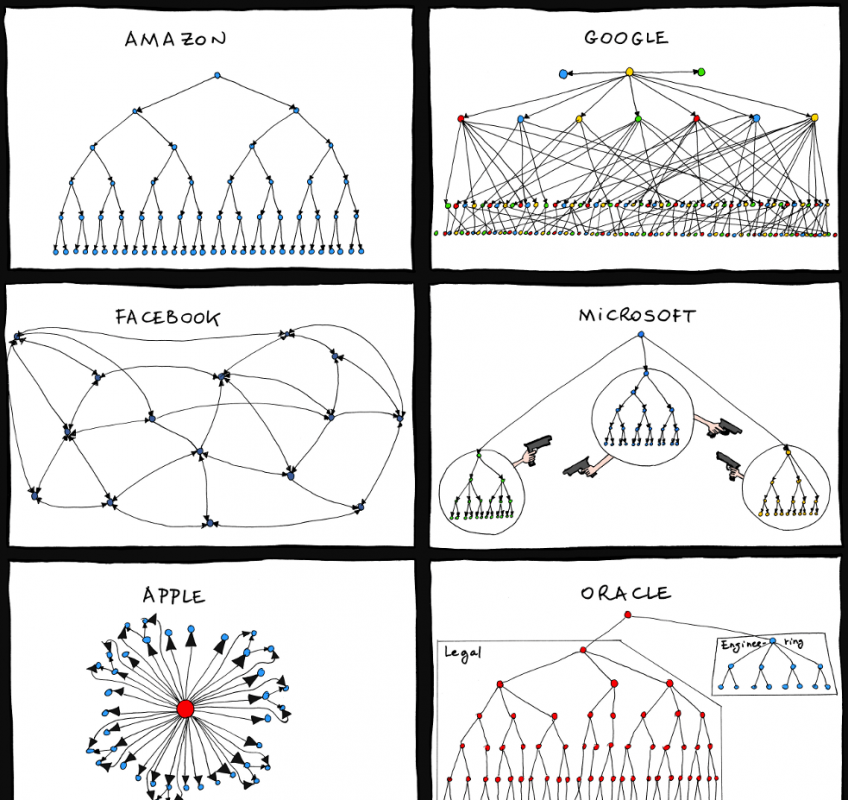
So the bottom line is you cannot do with bypasses in managing people. The prevailing culture in any organization is a representation of its values. What you need is a foolproof strategy and design that will shape the very character of your organization.
Some companies believe that organizational charts are pointless. They divide the company’s workforce. So if you want to work towards a no org chart culture, be sure to talk openly with your team about why you want to change and how everyone should operate going forward.
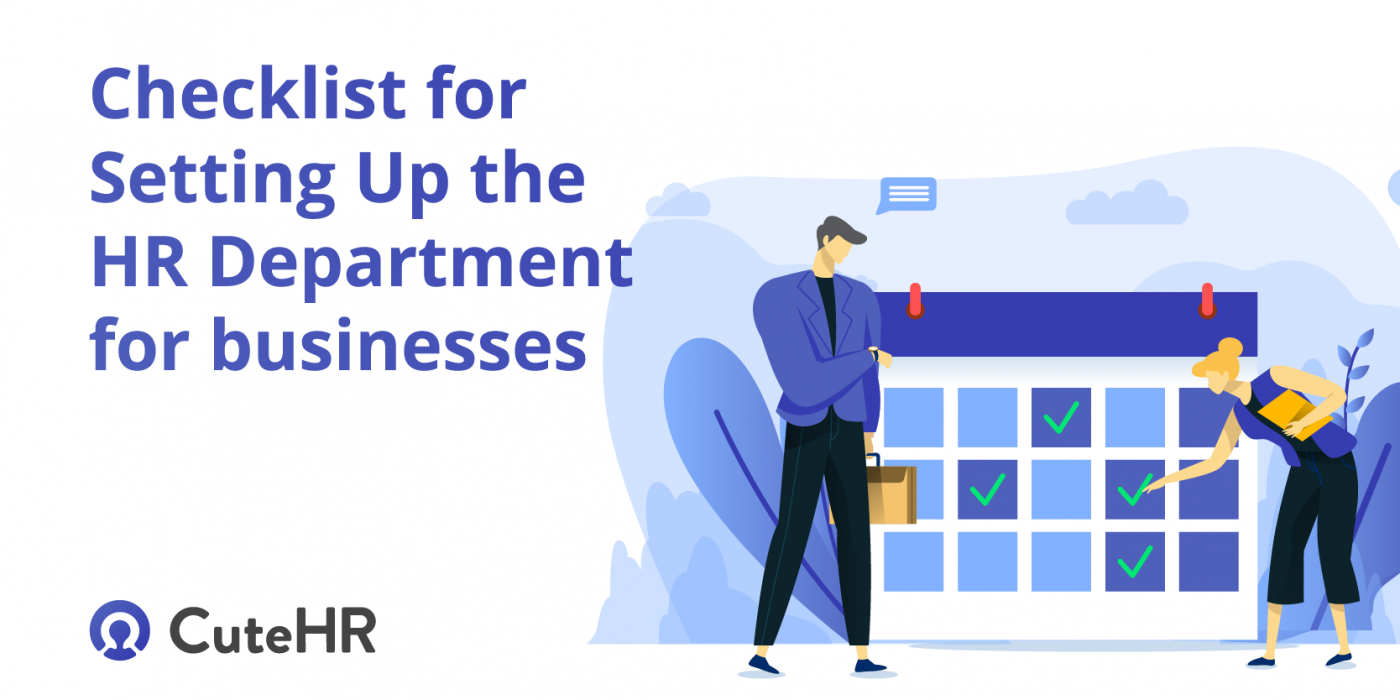
Checklist For Setting Up the HR Department For Businesses
Let us look at a checklist that can help create a strong HR Business function for your start-up or business. First, we shall find the checklist, later we shall understand what needs to be done under those checklists.
- Setting Hiring and Onboarding Systems
- Assign Clear goals and responsibilities
- Policies and Procedures setup
- Meeting HR Compliances.
- Strong Compensation Structure.
- Positive Work Culture setup
- Managing Employee Performances.
- Culture of Rewards and Recognition.
- Create a Documented Action Plan
- Use of Technology Intervention.
So, these are some of the prior needs on which you need to invest in setting up your hr department. Let us understand how we can get inline with this checklist and implement the best HR Department procedure in the businesses.
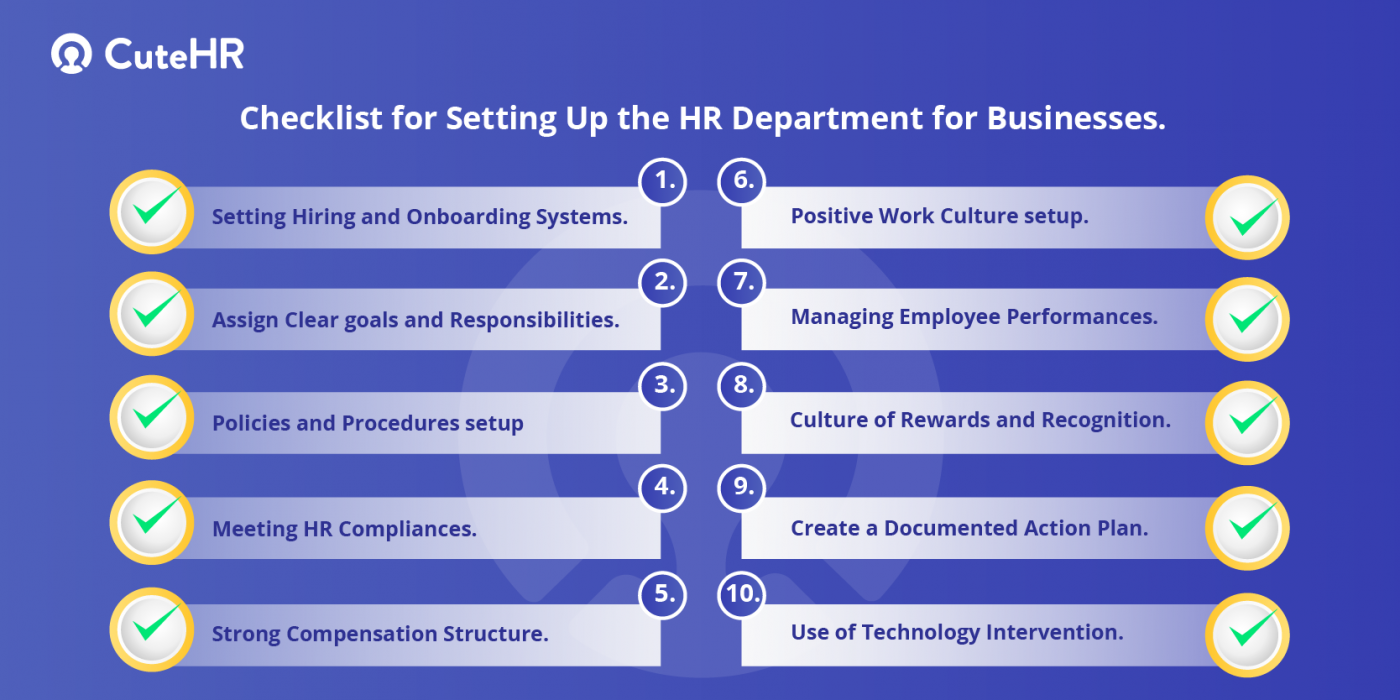
1. Setting Hiring and Onboarding Systems
How are you going to develop your team? What are your sources to hire new people? Your hiring decisions should be well crafted and finely prepared to do the right hiring. Even with the first employee that you hire, include these key elements to attend:
- Create a clear job description template before you hire. Identify what roles are you hiring for and then create the skill-sets that will match those roles.
- Identify which job boards/referrals /vendors you wish to use for meeting your hiring demands.
- Interview candidates not just on their skill set but also their EQ (Emotional Quotient) and the capability to adjust in a dynamic start-up environment.
- Create an Offer Letter / Appointment letter describing clear terms of employment to avoid any situation of disagreement.
- Formulate system to manage documents of New Employee.
- Perform Employment Verification (I-9 legal employment verification) with the candidate’s last employer that ensures you are making the right hire for the job.
- Prepare and keep Agreements like non-competition, confidentiality, and intellectual property right, etc. to protect the company against any violations.
The new hire is an investment and will need the right orientation to your product’s idea. Onboarding and induction are as important as hiring so that any gap in expectations as an employer can be discussed. Spend quality time in connecting with the new joiner and form an open communication course for him to adapt and understand your vision and core values.
2. Assign Clear Goals And Responsibilities
While constant up-gradation is a natural thing for any startup, a clearly defined structure with predefined roles and responsibilities lets each employee know what is expected out of him. Also, the best team is not the ones just with the top skills and knowledge, but the ones that share common goals and vision.
- Assure your team is clear about your company’s aims and aspirations. Many entrepreneurs create teams, delegate tasks and leave them to it.
- Making a strong team will need a strong effort of constant intercommunications with your people to leverage the right talent.
- The New Age Management approach is a much leaner structure with regular feedback to overcome performance gaps.
- With a process-oriented outline, you will find your team functioning effectively and winning your admiration for being the Best people to work with.
- Be a thought leader to your employees and help your team improve.
3. Policy and Procedural Setup
Big or Small teams, a well-defined framework of policies safeguard your company against any unethical practice or potential litigation. It also establishes an understanding among your employees about what behavior won’t be accepted.
- A Policy describing the basic standards of code of conduct.
- Policy around maintaining work hours, flexible hours, leaves benefits, leave of absence, complaints, etc.
- Policy around managing grievances and conflicts.
- Defining workflow of who will handle conflicting scenarios and scope of addressing them.
- Termination and Retirement Policies.
4. Meet HR Compliances
Many of the startup founders are not trained in managing human resources and hence mostly don’t know what government laws apply to their organization’s ecosystem. Big or small, some laws and procedures are essential even before you start to on-board people. Check your local laws of the country about workplace safety, employee welfare, diversity inclusion, contract labors, taxation, payroll, etc. Consult an HR or legal expert who can provide you with the information and procedures to comply with necessary regulations from day one. Ensure compliance with fair employment practices, healthy and safe workplaces. Some essential policy compliances to consider include:
- POSH (Prevention of Sexual Harassment)
- Equal Employment Opportunity (Beyond caste, creed, religion or any other form of diversity)
- Company’s Act benefit, Labour Laws or any other statutory compliance like PF, ESI, etc.
- Prevention against workplace injuries by ensuring workplace safety requirements.
DOWNLOAD STARTUP EMPLOYEE HANDBOOK TEMPLATE ( Powered by humaninterest.com ) Please note: Make a copy of this to download the handbook. See Image below
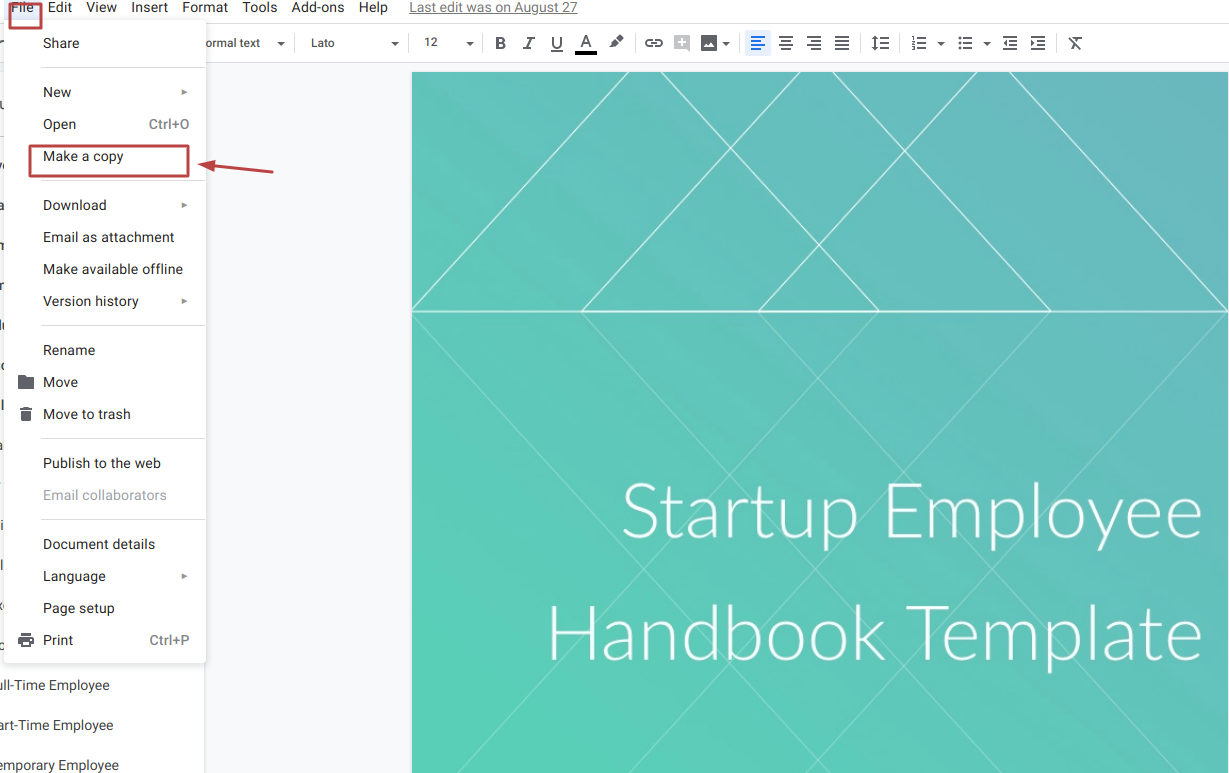
5. Strong Compensation Structure
Competitive compensation benefits as per industry standards are pivotal to retain the best talent around. To create a competitive plan you will need to determine the following:
- A fair Pay structure according to industry norms so that you don’t end up underrating or overcompensating any hire. Studying the market paying pattern will help you achieve this.
- Inclusion of optional benefits like medical, vacation, life insurances, retirement benefits, etc.
- A defined system of how to manage and process your payroll on a regular cycle. You may review and choose any of the payroll system software available to create error-free payroll management.
Apart from the above mentioned, there are a few other factors to take control of:
- Set up a schedule for processing payroll as per defined cycle.
- Define a framework for calculating expenses and reimbursement structure if applicable.
- Study government payroll rules and regulations so that you know if you need to include any essential taxes or incentive components while creating a compensation structure.
- Have a design to classify employees as per their job roles so that the pay rates are defined, therefore.
- Have a system to manage standard deductions like leaves, professional tax, etc if any.
6. Positive Work Culture
A healthy work culture defines employee satisfaction and hence boosts productivity. Along with addressing employee concerns, nurturing employee interests and engagements is the secret to an impeccably driven team.
- Devise a system of regular constructive feedback and mentoring to promote positive work culture. This will dissolve the possibility of any workplace politics that could be detrimental to your business function.
- Hold regular team building activities to form team cohesiveness.
- Support fairness in all your interactions with the employees and create a great employer branding for the potential hires in the future.
7. Managing Employee Performance
Having a quarterly or annual reward and performance appraisal system in place will build employee’s faith in your company. To encourage employee growth and retention, it is important to create a culture of performance reviews and succeeding benefits. Ignoring this crucial factor can cost you in losing good talent. A regular system of reviewing employee performance will help fix the gaps that could be creating cracks in your growth.
8. Culture of Rewards and Recognition
The Genx employee today is not just inclined with monetary benefit, but also the quality of work-life and recognition. startup entrepreneur is at times too focussed on meeting the market challenges and get hard pressed on achieving productivity from their employees.
To create great teams, develop strong bonding with your employees through regular rewards and recognition initiatives. If Employees are always critically reviewed without any timely reward system, they will become disengaged soon. Structure a reward program to encourage and boost employee morale.
A culture will primarily define future success for your company based on what values resonate among the employees.
9. Use of Technology Intervention in the HR Department
Startups have limited financial resources and the focus is on the essentials. However, investing in an HRIS (Human Resource Information System) can help you streamline the major operations of managing leave, attendance, task tracking, payroll, etc.
There is a variety of HR Software available e.g CuteHR that are specially designed to cater to small businesses and allow customization as per your business structure. These can help you automate the administrative tasks so that you can focus on building strategically performing teams.

10.Create A Documented Action Plan For HR Department
- Create a detailed action plan to incorporate all the listed HR checklist points so that all the key stakeholders are on the same page and know how the HR Function will be placed in the organization.
- Discuss with the key stakeholders how to implement the HR Strategies to ensure your staff is focussed on the vision and goals of the company.
- Most importantly create an Employee handbook so that all the new hires understand the terms of employment in advance and do not remain confused.
- Include all the key areas like company practices, benefits, safety issues, general conduct, implications of misconduct, etc.
This will help resolve any conflicting situation basis rules and standard procedures.
Final Though On HR Department Setup
Setting up a proactive company culture in the new age economy is a daunting task. But a few steps right from the beginning can help create a great brand value for your company. A proactive Human Resource Management system is focussed on identifying the gaps at the right time and resolving them. It is defined through how you work and build trust in your workforce.
A well-run startup is the one that is meticulous about all the nitty-gritty impacting their environment. While the task of setting up the right culture through the right processes is not easy, the results might surprise you with built employee trust and involvement.












Jyoti Kapoor